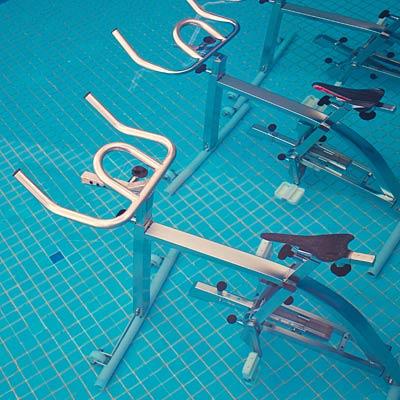Weight Loss Surgery and Emotional Eating - Tips for Breaking the Emotional Overeating Cycle
Weight loss surgery patients are often surprised to find old habits with food creeping back into their lives. While the path back to emotional over-eating can be somewhat different depending on what weight loss surgery procedure you had, here's the hard truth: habits related to food, especially the habits of using food to care for our emotional needs, are hard to break.
Here are important steps to follow if you recognize emotional over-eating after weight loss surgery:
1. Identify it
Name it for what it is. If you are eating because you are tired, angry, bored, sad, anxious or excited the first important step is to notice that this is what is happening. Try to get into the habit of assessing how physically hungry you are before you eat. Learning to pay attention to hunger cues is an important skill even if weight loss surgery has altered them and you are required to eat when you do not feel physically hungry.
2. Be a detective
Sometimes this is most easily done by working backwards. If you have a day of eating that feels out of control, take some deep breaths afterward and do some detective work. Hold your judgment at bay and cultivate your curiosity. What was different about this day then the one before it? What led you to eat more? How were you feeling? When did you start thinking about food?
3. Learn your triggers
As you practice the first two steps, you will begin to identify some "triggers." These are feelings or situations or circumstances that tend to lead you down the path of eating when you aren't physically in need of food.
4. Pay attention to your "basic needs"
We all have basic needs for sleep, physical activity, stress release and relaxation, time alone and time with others. Take the time to know your needs in these areas and make sure that you are fulfilling them. As a weight loss surgery patient, you also need to pay extra attention to nutritional needs. Letting things like B12 shots, supplements, protein and water slide will affect your energy level and can drastically affect your eating (not to mention your health).
5. Start to develop a plan of attack
As you learn to identify your emotional hunger and you start to develop an awareness of what triggers it for you, you can start to develop some alternate coping strategies. "What can I do instead of overeating?" and "What else can I start to do when I am feeling (fill in the blank with your trigger)?" are some of the most powerful questions you can start to answer. Don't feel defeated if you don't know the answers to some of these questions. Make a note of them. These are the areas where you will really want to start collecting more tools, strategies, and support to help you.
6. Be patient
You didn't become an emotional over-eater overnight and you aren't going to overcome it in one fell swoop. Be gentle with yourself and keep working these steps. They will make a difference.
Melissa McCreery, Ph.D. is a Psychologist and Life and Wellness Coach who helps her clients create and live their very best lives. She is also the creator of the Emotional Eating Toolbox (TM), a 28-Day Self-Guided Program for Taking Control and Moving Beyond Dieting. Learn more and subscribe to her free newsletter, Mindspa, at her website: http://www.enduringchange.com
-
Lose Stomach Fat: lose stomach fat add muscle - Is Exercise Enough
Seeking to lean our own middle is among the most hardest difficult
-
Fett Verbrennungs Ofen - Verlust schnelle Gewichtszunahme
Fett Verbrennungs Ofen - Fett Verbrennungs Ofen ist ein Gewichtsverlus
-
Juice Fasting Recipes For Weight Loss - What You Need To Know Before You Start
To get effective results using juice fasting recipes for weight lo
-
Appear Far Better Without Having Burning Fat!
Crunches are a single of the most widely completed forms of physica
-
How To Stop Sacrificing Sleep Over Your Diabetic Diet Meal Plan
As soon as I talk about the diabetic diet meal plan to my clients,
-
The BodiPerfect â„¢ Anti Cellulite Pants is a Good Way of Reducing Cellulite
Many people try doing exercises in order to get rid of cellulite. In o
- DON'T MISS
- Home Workouts To Lose Weight
- Have the quickest weight loss with the best clinics in Miami
- How Fast Can You Lose 50 Pounds?
- The Truth About HCG Dangers
- Fats weight loss through the multi- functional Acai berry thin product
- How to Take Flax Seed
- Slim Down With These Smart Weight Loss Tips
- The Magic of Diet Plans Online
- The Diet Solution
- Overcoming your Weight Loss Plateau by Kim Beardsmore




